
Opera Atelier’s co-artistic director Marshall Pynkoski stepped on stage just before the curtain rose on Saturday night. The opera was Don Giovanni – and Pynkoski, who served as stage director for the new production, had a few words to say.
| Dr. Colin Eatock, composer |
|
 Opera Atelier's Don Giovanni. Opera Atelier is a Toronto-based company that specializes in baroque and classical opera. Mozart’s Don Giovanni, which opened on Saturday, is about as “modern” as they get. Here’s my review, from today’s Globe and Mail. Opera Atelier’s co-artistic director Marshall Pynkoski stepped on stage just before the curtain rose on Saturday night. The opera was Don Giovanni – and Pynkoski, who served as stage director for the new production, had a few words to say.
5 Comments
 Have you named your piano? Here’s something I wrote for today’s Globe and Mail. I’m always amused by the way musicians anthropomorphize their instruments. I guess it’s a relationship building strategy. Concert pianists are, of necessity, a hardy breed. Through years of practice, they must develop nerves of steel, technical brilliance and sophisticated interpretive insights. And, what’s more, they must be adaptable, able to play the piano that’s available wherever they’re engaged to perform. 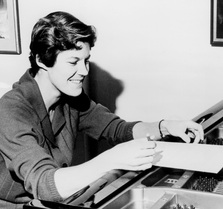 Composer Ann Southam. Yesterday, I read that Canadian composer Ann Southam, who passed away last November, donated $14 million to the Canadian Woman’s Foundation. You can read the announcement here, in the Toronto Star. You’ll have to read down to paragraph 12 to find out that she wrote music – but for many in Canada’s contemporary music community, she was a composer first and foremost. In fact, she was a brilliant composer, forging a kind of minimalism that was fresh and distinctive. Her reputation continues to grow. (If you don’t know her music, click here.) 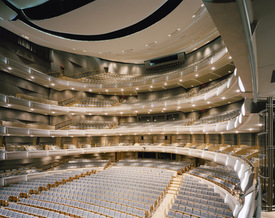 Can you see the opera boxes in this theatre? Recently, an insightful article about opera houses, by Andrew Clark, appeared in the Financial Times. (See here.) In it, he deconstructs opera houses of the past and present, arguing that their layout was largely based on social criteria. I’m inclined to agree with most of what Clark says. There’s overwhelming historical evidence that backs up his claim that opera houses were designed with class structures very much in mind – and that as these changed over time, so too did the opera houses. 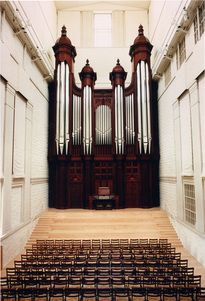 Not so old, but very grand. Here’s a pleasant surprise from my recent tour of the Shepherd School of Music at Houston’s Rice University. At the end of a corridor there’s an unimposing door that looks like it might lead to a storage room. But as soon as you walk in, you’re face to face with a mahogany mammoth. “The room was designed for the instrument,” said Martin Merritt, the Shepherd School’s facilities manager, “and the instrument was designed for the room. The ceiling in here is 75 feet high.” He went on to explain that the organ was designed by C.B. Fisk, with the collaboration of Rosales organ builders, and is called the Edythe Bates Old Grand Organ.  Rossini would have liked this. I just got back to Toronto after a couple of days deep in the heart of Texas. It was a whirlwind trip, packed full of meetings with people in Houston’s musical and journalistic communities. A musical highlight of my visit was the Houston Grand Opera’s season-opening Barber of Seville – a new production staged by Joan Fort, with sets and costumes by Joan Guillén. (This was the same team that created a Cenerentola infested with the cutest rats ever, a few years back.) It was pure fun: a riot of day-glo colours and bursting with goofy hijinks – even by Barber standards. However, underlying all the frothy stuff was a rock-solid cast, led by Nathan Gunn in the title role, with Ana María Martínez as Rosina and Lawrence Brownlee as Almaviva. I think Rossini would have been greatly pleased.  Lawrence Brownlee. I first heard tenor Lawrence Brownlee last spring, when he sang in the Canadian Opera Company’s production of La Cenerentola, and was very much impressed. On Friday he opens the Houston Grand Opera’s season, in The Barber of Seville. Here’s my recent interview with him, from today’s Houston Chronicle. Some would say tenors are the luckiest of opera singers. They’re rare, so they earn top dollar. As well, they get plenty of attention and publicity – and at the end of the opera, they usually get the girl. Tenor Lawrence Brownlee, who appears in the role of Count Almaviva in the Houston Grand Opera’s new The Barber of Seville, has had his share of good fortune. He’s blessed with a naturally high and agile voice well suited to the florid bel canto style of composers like Gioacchino Rossini, Gaetano Donizetti and Vincenzo Bellini. At 38, he’s at the top of his game. 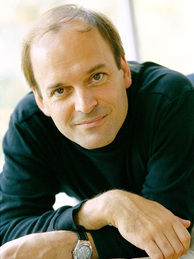 Pianist Louis Lortie. Louis Lortie brought his current love – Franz Liszt – to Toronto’s Koerner Hall on Sunday afternoon. It was, in many ways, a remarkable performance. And here are my remarks, from today’s Globe and Mail. Franz Liszt couldn’t have hoped for a more committed champion than Louis Lortie. The Hungarian composer, who was born 200 years ago, is the current beneficiary of Lortie’s intense style of programming. The 52-year-old Canadian pianist has a penchant for throwing himself wholeheartedly into the music of a single composer. First, it was Ravel, in the late 1980s, then it was Chopin’s turn – and, after that came years devoted to Beethoven and Mozart. 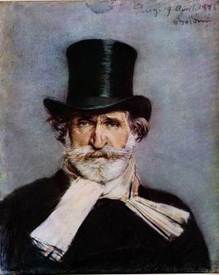 Keeping musicians on their toes since 1839. I recently took in an opera performance from an unusual perspective. Here’s my article, from today’s Globe and Mail. It’s the Tuesday afternoon before a Wednesday performance of Verdi’s Rigoletto at the Four Seasons Centre for the Performing Arts in Toronto. Johannes Debus, the Canadian Opera Company’s music director, seems relaxed in his Spartan office on Front Street East, as he describes the challenges of his job. “The conductor in an opera has to bring all the forces together” says the 37-year-old maestro. “There are so many elements in an opera – and even in the best opera houses in the world, problems can happen. But whatever happens, you have to stay calm.” 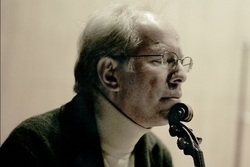 Violinist Gidon Kremer. Here’s my interview with Gidon Kremer, from today’s Globe and Mail newspaper. The Latvian-born violinist Gidon Kremer brings his trio to the Royal Conservatory’s Koerner Hall on Friday for a Toronto program of chamber music by modern Russian composers and J.S. Bach. (He also appears with the Montreal Symphony Orchestra on Oct. 18 and 19.) The prodigious musician grew up in the Soviet Union, and studied with the renowned David Oistrakh in Moscow. Following victories at Western music competitions and international tours, he left the Soviet Union in 1980. No stranger to controversy, he’s been in the news recently for his public stances on political and artistic issues. |
Eatock Daily
I'm a composer based in Toronto – and this is my classical music blog, Eatock Daily. Archives
May 2024
Index
Click here for an alphabetical list of blog entries.
|